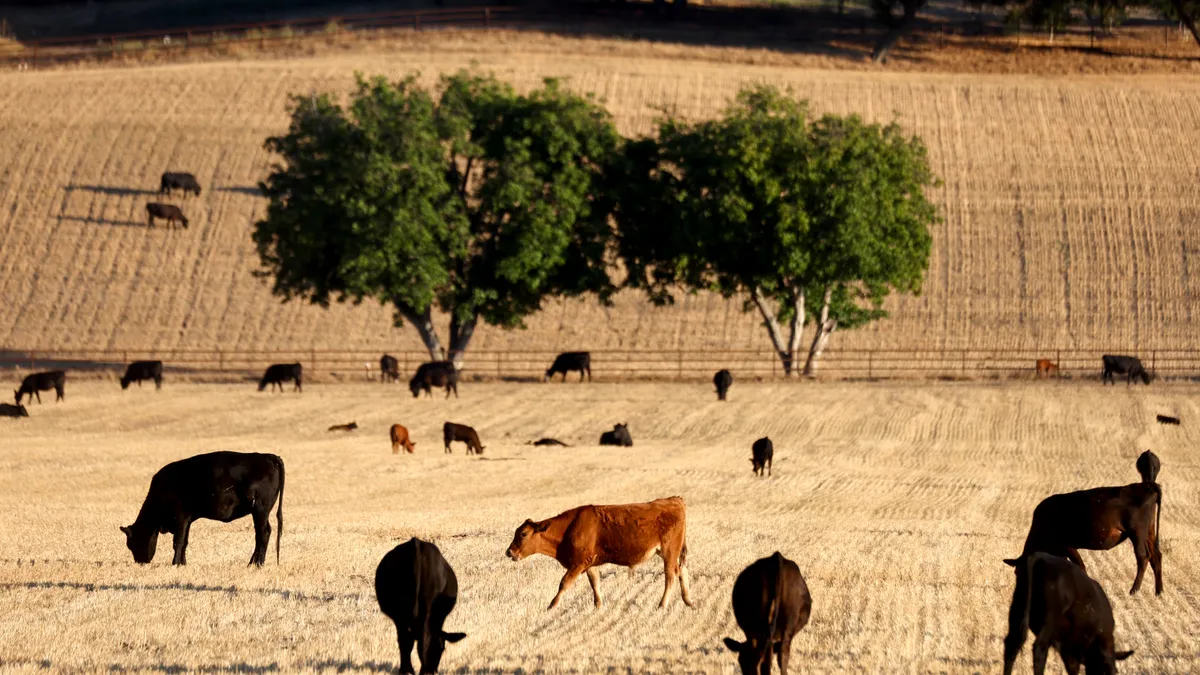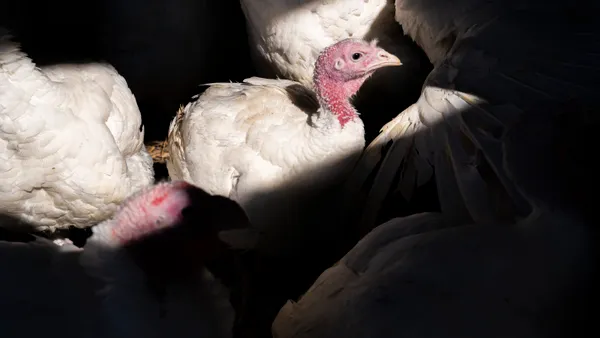Dive Brief:
-
The U.S. Department of Agriculture is increasing payments to Midwest ranchers who saw their cattle herds shrink from oppressive heat and humidity this summer.
-
The agency raised its indemnity payment rates for beef calves over 800 pounds from $1,244 per head to $1,618, the agency said last week. The updated livestock indemnity payment is effective immediately and can be applied retroactively to losses earlier this year.
-
Ranchers have pushed for more support to reflect the rising cost of cattle, noting that current payments for finished or near-finished “simply isn’t and are not reflective of the losses being suffered,” USDA Secretary Tom Vilsack said on the agency’s radio newsline.
Dive Insight:
Extreme temperatures have taken a toll on cattle producers throughout the country, but the losses have been even more painful because the animals are worth more than they were just a few months ago.
“It’s our job to work with producers to help them weather these events,” Vilsack said, adding that “temperatures unfortunately in the near term aren't necessarily expected to let up.”
The Livestock Indemnity Program, managed by the USDA’s Farm Service Agency, pays producers for the loss of livestock due to adverse weather or certain disease. The program covers weather-related livestock deaths up to 75% of the animal’s fair market value, which has increased dramatically as domestic supplies of cattle continue to decline.
To help indemnify ranchers to reflect a trend towards higher cattle weights in feedlots, the USDA raised its payment rates by $374 for beef calves over 800 pounds.
Average prices for beef calves have surged to $260 per hundredweight, up 41% from $184 last year, according to June USDA data. They are up $51 since the start of the year and $9 since the previous month.
“We will continue to find flexibilities where possible to help our farmers and ranchers in the wake of climate-related impacts,” FSA Administrator Zach Ducheneaux said in a statement.
Extreme weather has created immediate challenges for agriculture producers navigating through increased storms, floods, drought and wildfires. As states grapple with triple-digit heat indexes in the Midwest and limited rainfall that has worsened drought conditions, ranchers are taking extra precautions to protect their cattle. Hundreds of cows in Iowa died in late July, which was one of the hottest months on record, Reuters reported.
Several barns have canceled sales this week due to excessive heat, according to a recent USDA cattle summary. High temperatures pose significant risk to transporting cattle.











